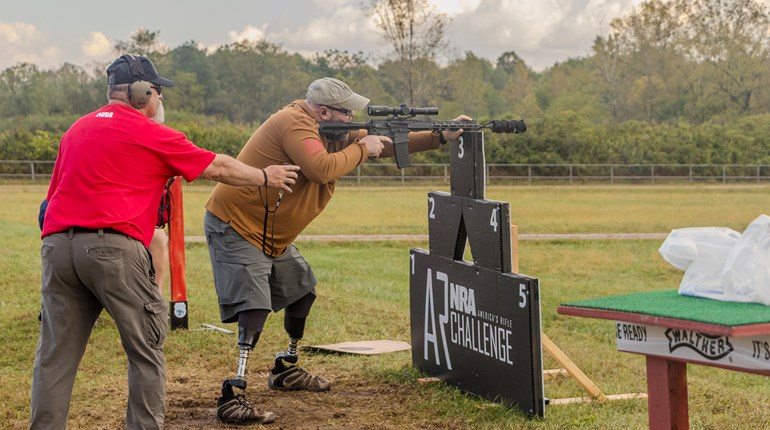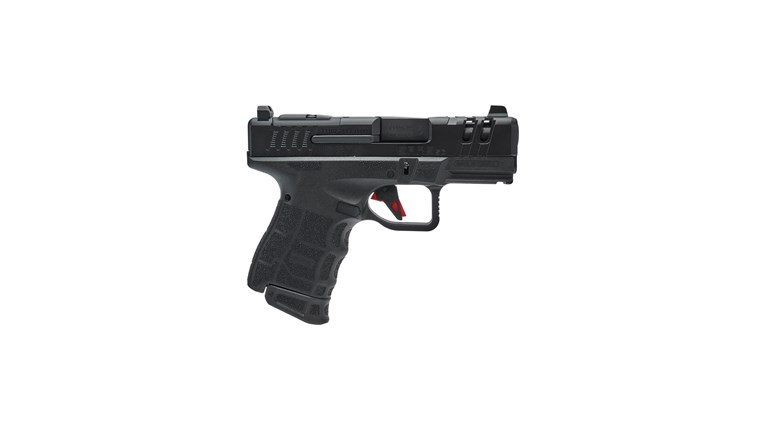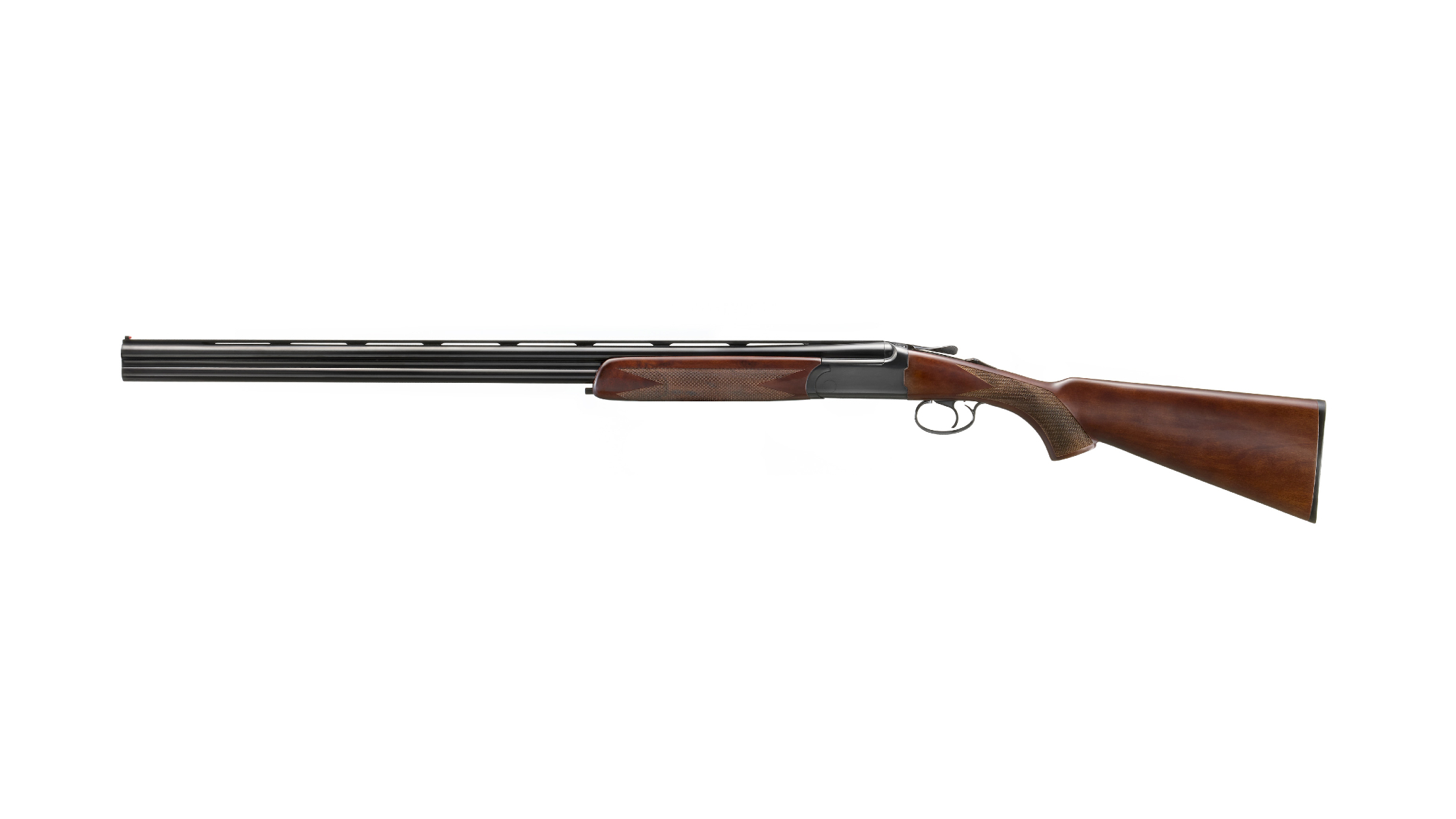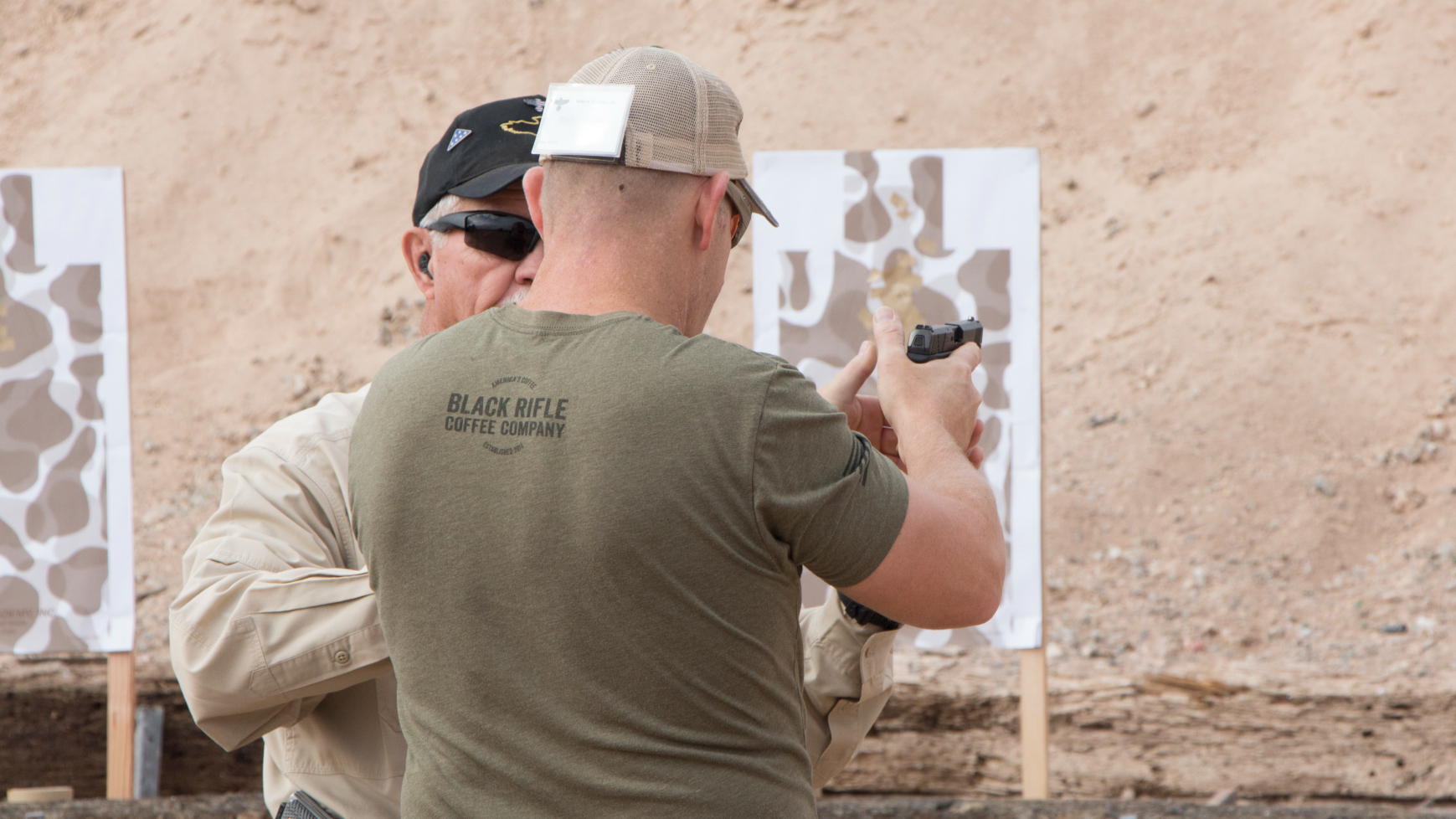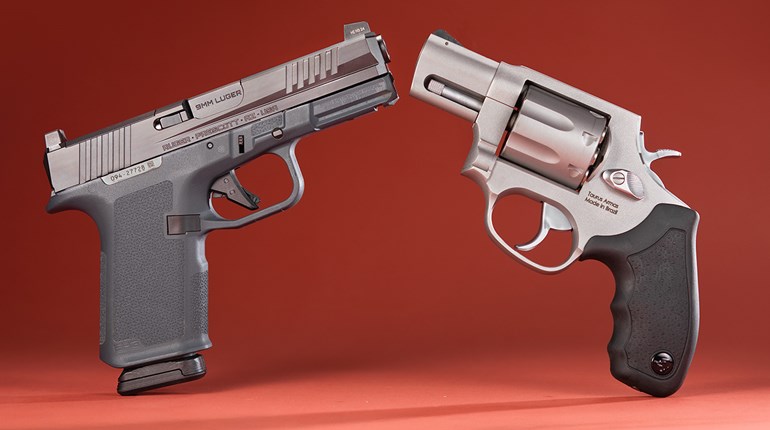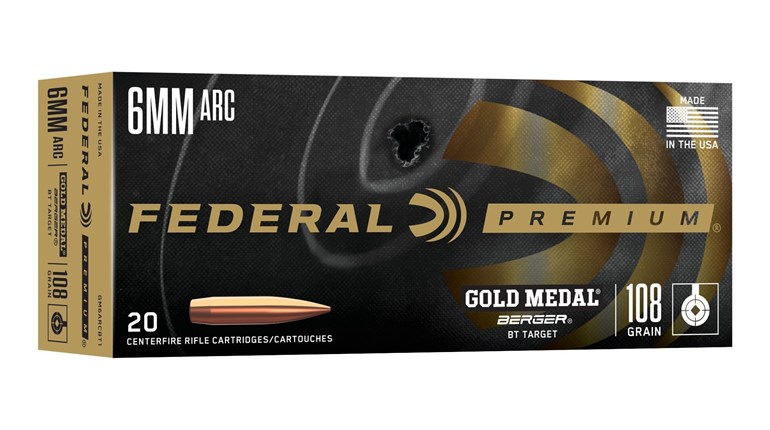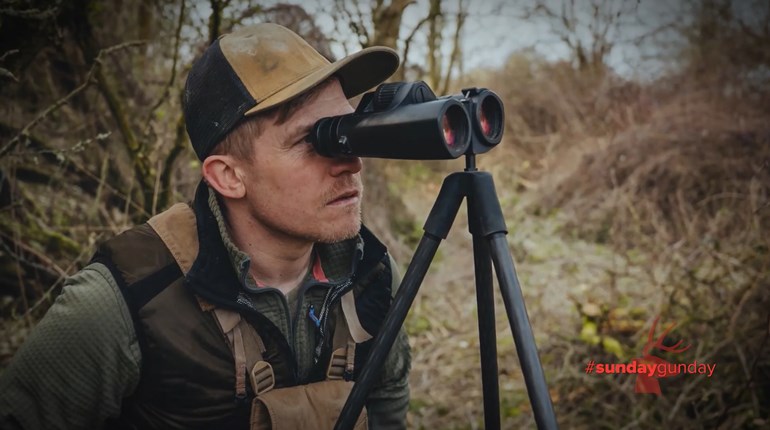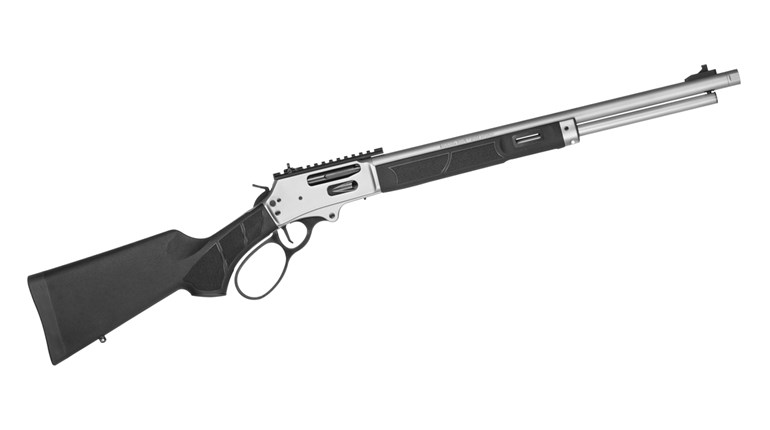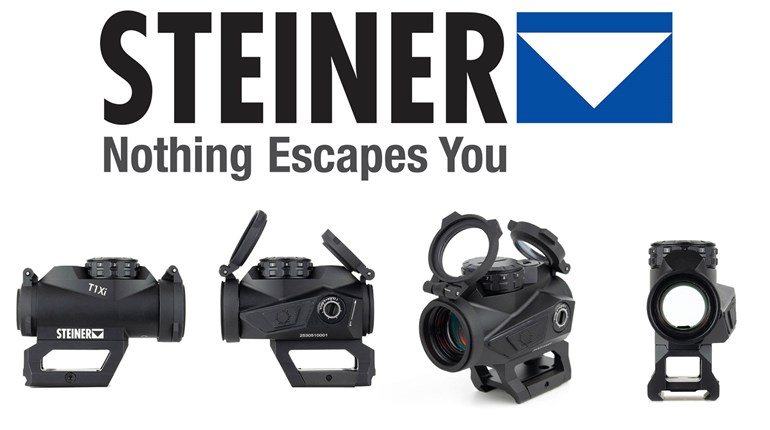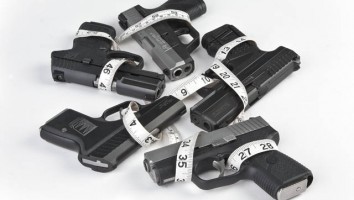
The great majority of states now have laws permitting licensed carrying of concealed firearms. The politicians have heard the strong-and-determined voice of the people: Americans want the right to bear arms, as guaranteed by the Constitution.
It comes as no surprise to those Americans interested in firearms. Still, it is worth noting the pistols in this article probably would not be available if there was no strong demand for concealed-carry handguns.
Guns don't routinely ride on the person—or in carried cases—unless they are relatively light. In my view, that is the single-most-important characteristic for selecting a hideout gun. But the firearm also needs to be pretty small, particularly in the sense of side-to-side girth. In other words, the gun's thickness is important for the shooter to be confident the gun does not print through lightweight clothing. The popular double-column magazine adds girth. So, we'll have to forgo that extra ammo supply and settle for something like 6+1 capacity.
It goes without saying that a defensive handgun needs to be powerful enough to reliably stop fights, and the 9 mm cartridge is more than accept-able to get that job done. Finally, there are a number of other features like sights, ease of operation, safety and trigger action that are important to those who carry. Five pistols in current use match up well with this short list of features. They are the Kahr PM9, Kel-Tec PF-9, Rohrbaugh R9, Taurus PT 709 and Walther PPS.
All are intended for use with standard-pressure 9 mm ammo with FMJ or JHP bullets. Four out of five come with polymer frames, but three of those four are actually a little heavier than the one with an alloy frame. Four have the currently popular double-action-only trigger system. Barrel lengths hover around the 3-inch mark, varying from 2.9 to 3.2 inches. There's a considerably wider range of weights—12.7 to 21.3 ounces. By factory specifications, there is an even inch of difference in overall lengths, from 5.3 to 6.3 inches. In prices, the range in the quintet is quite large, from $333 all the way up to $1,150.
Kahr PM9
Kahr Arms gets a big chunk of the "little auto" money spent in America every year. From its first K9 pistol of several years back, to the current wide range of guns, the company makes a lot of pistols in the popular semi-automatic calibers. That's 9 mm, .40 S&W and .45 ACP, with a tiny little .380 ACP added last year. For this survey of slim 9 mms, I chose the smallest 9 mm Kahr, but the company actually makes several other single-column lightweights, and the slightly larger P9 would also fit the bill.
The PM9 is like all other Kahr pistols in its double-action-only trigger system, which uses slide movement to partially cock an internal striker. Pressure on the trigger completes the cocking and releases the striker to fire a shot. The slide cycles and again pre-cocks the striker. Should a misfire occur, the shooter must manually cycle the slide to insert a fresh round and reset the system. It is very simple and has only one trigger pull to master. Over the years the gun has been in service, it has achieved a reputation for reliability, as long as the shooter follows the instructions in the manual that advise a break-in period of several hundred rounds.
Nicely appointed with sights securely dovetailed into the slide, the little Kahr is a well-made gun using the Browning-designed, tilting-barrel form of recoil operation. One interesting design feature is the offset feed ramp on the barrel. It's over to the left side, but works perfectly and leaves room for the trigger bar inside the receiver located on the right side.
PM9s come supplied with two magazines and the second one is a seven-rounder that extends below the frame, but has a nicely designed finger rest extension.
Kahr PM9
Action: Recoil
Trigger: DAO
Barrel: 3.0 inches
Weight: 15.9 ounces
Capacity: 7+1
Length: 5.30 inches
Height: 4.00 inches
Width: .90 inches
Mags: Two
MSRP: $786
Kel-Tec PF-9
Florida-based Kel-Tec CNC has been making innovative and unique gun designs for more than 20 years. Its latest gun is a flat, easy-to-carry 7+1-round 9 mm called the PF-9. Another double action only, the gun uses a pivoting hammer, rather than an in-line striker. It's also a recoil-operated, locked-breech pistol, but the hammer is different enough to warrant a closer look. Here, the hammer is made deliberately light and has no spur, which would be unnecessary anyway, as it can't be cocked. The mass of the hammer is actually concentrated around the pivot, and this contributes to greater speed of hammer fall against a deliberately light firing pin. It works, but it isn't a system that likes a great deal of dry-firing.
The PF-9 uses a machined-steel slide and receiver that start as castings. In this case, the receiver is only a shaped block that positions the action parts and accepts the barrel and slide. It fits into a molded-polymer shell that forms the butt of the pistol, including the magazine well and the trigger guard. The polymer element gives the pistol its ergonomic shape, which is pretty comfortable. It even includes one of those ever popular light rails on the dustcover.
The PF-9 has a more-solid feel than other Kel-Tecs. While the rear sight is dovetailed into the slide top and is adjustable for windage, the front sight is cemented-in ramp and fitted with a white dot to match up with the dots on each side of the rear sight notch. Controls are minimal, in keeping with the gun's double-action-only design. There's a polymer magazine catch, right where it belongs near the left-side junction of the trigger guard and butt. The slide lock is just above that on the receiver. I also noted the lockable plastic case contains two interesting items: a replaceable floorplate for the single magazine that comes with the pistol—it has a slight finger rest extension—and a clever little plastic lock that fills the dubious need for an external action lock.
Kel-Tec PF-9
Action: Recoil
Trigger: DAO
Barrel: 3.1 inches
Weight: 12.7 ounces
Capacity: 7+1
Length: 5.85 inches
Height: 4.30 inches
Width: .88 inches
Mags: One
MSRP: $333
Rohrbaugh R9
Karl Rohrbaugh, owner of the eponymous New York-based firm, had a hard fight bringing his design into existence, but he managed to do it. A longtime firearms instructor, Rohrbaugh knew there was a demand for a small defensive pistol of impeccable quality. The R9 is what he came up with, and he really hit this one out of the park. A hammer-fired, double-action-only semi-automatic with a typical recoil-operated system, the R9 is the only super-slim 9 mm with all metal construction. The receiver is aluminum alloy and the slide and barrel are stainless steel.
The handgun's screw-on grips are made of grained polymer. They're important to the functioning of the pistol, because cavities inside the grip position springs that control the trigger movement. However it works, the double-action-only trigger pull on this little pistol is absolutely perfect—smooth, light and easy to manage. Throughout the gun, fit and finish is of the highest quality.
R9s are nicely shaped for their intended role as a concealed-carry pistol. At the front of the gun, the slide mates with an angled dustcover to form a sort of wedge shape. It not only looks racy, it has a functional purpose in its easy reholstering. The trigger guard and trigger sit at an angle from the long axis of the gun, which may be necessary for the efficient use of space inside the receiver. It has an advantage in that its trigger movement is both back and down, which tends to keep the gun anchored solidly in the hand.
Americans traditionally abhor a heel-mounted magazine catch, as it slows reloading. The R9 has one, although I don't believe it makes much difference in a pistol intended for close and immediate defense, not protracted battles. This is a very expensive gun, retailing for $1,150. As it happens, I recall Rohrbaugh's chuckle when I brought up the price. He simply said, "I sell every one I make." There are people willing to pay for quality.
Rohrbaugh R9
Action: Recoil
Trigger: DAO
Barrel: 2.9 inches
Weight: 13.5 ounces
Capacity: 6+1
Length: 5.20 inches
Height: 3.70 inches
Width: .82 inches
Mags: Two
MSRP: $1,150
Taurus PT 709
Taurus pistols are used throughout the world. This is a very innovative company, staffed by some of the sharpest gun designers around. It can put a brand-new product on the market about as fast as anyone ever has, and the company is willing to try almost anything. Consider the meteoric rise of the Judge revolver and you see what I'm talking about. Taurus has an extensive line of semi-automatic pistols that changes so fast, I can't keep up with it.
The PT 709 has a radically different feature. The gun itself is a single-column 9 mm, recoil-operated, semi-automatic using a polymer receiver and steel upper. It's very well shaped and sized for the concealed-carry role, has good sights, excellent ergonomics and an attractive price of $459.
But the trigger action on this pistol is so different, it requires explanation. Company President Bob Morrison is a veteran of the gun industry, as well as a former Special Forces Soldier. He has always been concerned with the problem of misfires in automatic pistols. Gunsite teaches that if you get a click and not bang, the solution is a tap-rack-reassess drill. That's tap the bottom of the magazine, rack the slide hard and determine if you still need to fire. The Taurus method gives you a second-strike capability in the event the first click came from a bad primer. This will often do the trick. Most double-action-only guns use some form of precocking of the striker, and you can't hit the cartridge a second time if the slide doesn't cycle. Double-action/single-action guns would permit a second strike, but this kind of action is rapidly disappearing. Taurus responded with a system best described as single action/double action. You load the pistol by inserting a magazine and racking the slide. This leaves the gun cocked, so put the safety on and drop it in a holster. If there is a need to draw and fire, you will encounter a short, fairly clean single-action pull that will release the striker. There's about one chance in a million the gun won't fire, but if it happens, you can pull the trigger again and get a second strike. This time, the trigger pull will be long and a bit rough, but it just might save your butt.
Taurus PT 709
Action: Recoil
Trigger: SA/DA
Barrel: 3.0 inches
Weight: 19 ounces
Capacity: 7+1
Length: 6.00 inches
Height: 4.45 inches
Width: .97 inches
Mags: Two
MSRP: $459
Walther PPS
Most handgunners are aware of the of effective concealed-carry pistols from Walther, although they may be surprised to find this gun is not derived from that line. It's a new design from the legendary German gunmaker that fills the concealed defense gun role better than any earlier model.
The S is in this gun's name stands for slim, and that's just what it is. The PPS, a recoil-operated, locked-breech, double-action-only 9 mm is one of the slimmest semi-automatics currently available. The specifications state the gun measures just more than 1 inch at the thickest point. That's true, but the great majority of the gun is closer to .90 inch.
Part of the dimensional saving comes from a clever use of weight distribution in the slide. Most pistol designs distribute the necessary weight of the slide around the barrel. The PPS concentrates a lot of its weight and mass above the barrel, making the gun a little taller, but much slimmer.
It uses features borrowed from full-sized, polymer Walthers, plus a couple of new ones. The magazine catch, for example, is an ambidextrous, push-down paddle across the bottom of the trigger guard. It works with the thumb or index finger from either side of the gun. This was first seen on the Walther P99, as was the replaceable backstrap system that adapts the gun to varying hand size. On the PPS, the backstrap comes off in the blink of an eye, but when it is off, it serves an additional function—the trigger linkage is interrupted in such a way that the pistol cannot be fired.
It comes with both six- and seven-round magazines, the former with a compact and concealable flat floorplate, the latter with a finger-rest variety. As much as I have raved about all the gee-whiz features of the PPS, you can see it's well worth the price of $735.
Walther PPS
Action: Recoil
Trigger: DAO
Barrel: 3.2 inches
Weight: 21.3 ounces
Capacity: 7+1
Length: 6.30 inches
Height: 4.40 inches
Width: 1.04 inches
Mags: Two
MSRP: $735
Overall Impressions
The Kahr PM9 is a longtime favorite of defensive handgunners, carried by everyone from prominent attorneys in New York to retired Border Patrol agents in Arizona. A sound, strong little gun with a positive reputation for reliability, the PM9 is an American standard. The test gun was one of the first made and it performed perfectly.
My experience with Kel-Tec goes back a number of years and it has not always been good. To my complete delight, the PF-9 worked as it was designed—with absolutely no malfunctions—making it the best Kel-Tec I have ever fired. The company's goal was to build a gun that is both inexpensive and light, and it did exactly that. But it was so light, recoil was noticeable. That's OK, because if the gun saves your tail, you'll never remember a little recoil.
In alphabetical order, that brings up the Rohrbaugh R9, a beautifully made gun with superior finish and a silky-smooth action, the R9 gets high marks for reliability. It just doesn't malfunction. I know the price tag is a killer, but you really do get what you pay for.
So far everything is double action only, but Taurus was on a mission to produce a gun with ultra-reliable second-strike capability. The Taurus PT 709 has a unique SA/DA trigger system giving the shooter a fairly clean single-action trigger pull (and a very short reset) for every shot. Carry the gun with the internal striker cocked and its down-to-fire safety on. If a bad primer produces a click instead of bang, there is a long-arc, double-action trigger stroke available. No other firm uses this kind of action, and Taurus matches it with other good features on this skinny nine.
Finally, there is the Walther PPS. No other small pistol of recent memory seems to have the array of innovative features found on this German import. We have already run through them, but I can't leave without mentioning the Walther is tactically ambidextrous—slide locks on both sides and an either-side magazine catch at the trigger guard. Add a very shootable double-action-only trigger and a decent set of sights, and you have a good concealed-carry 9 mm.
At the Range
I have reviewed several of these guns in the past, but a couple were brand new. To level the playing field as much as possible, I fired the new guns a little more, in order to break them in a bit. Some readers might recall my recent article in Shooting Illustrated on tiny .380 ACP pistols. That expedition was full of problems and malfunctions. To my considerable pleasure, all five of these pistols worked exactly as designed. There were no malfunctions. I believe part of the reason is 9 mm ammunition yields higher pressure—there is a much sharper recoil thrust.
This is not to say the accuracy testing over sandbags at 25 yards was easy or pleasant. These are all small pistols with minimal sights, long trigger pulls, multiple sharp edges and pronounced recoil. In this light, I would hope readers take the accuracy results with a grain of salt. These are not pistols intended for precision bullseye shooting at 25 yards, but rather moving criminal attackers somewhere inside of 7 yards. In this regard, they are all up to the job. And, most of all, they are small, light and slim enough to be easily carried in case of need.














